Feliz años nuevo a la comunidad Humanitas. Esta publicación se corresponde con la iniciativa “salud mental” (Un tema para cada día: mes de diciembre) presentada por @eudemo en diciembre de 2024. Llega con unos días de retraso por falta de tiempo. Mi idea era cerrar el año con esta publicación en esta comunidad. Finalmente, ésta será mi primera publicación de 2025.
Como pasó diciembre, invito a participar en la iniciativa Un tema para cada día: mes de enero a @manclar, a @sacra96, a @felixmarranz y @janaveda, y por extensión a todo el mundo interesado en las humanidades.
Happy New Year to the Humanitas community. This publication corresponds to the “mental health” initiative (A theme for each day: month of December) presented by @eudemo in December 2024. It is a few days late due to lack of time. My idea was to close the year with this publication in this community. Finally, this will be my first publication of 2025.
As December passed, I invite @manclar, @sacra96, @felixmarranz and @janaveda, and by extension everyone interested in the humanities, to participate in the initiative A theme for every day: month of January.
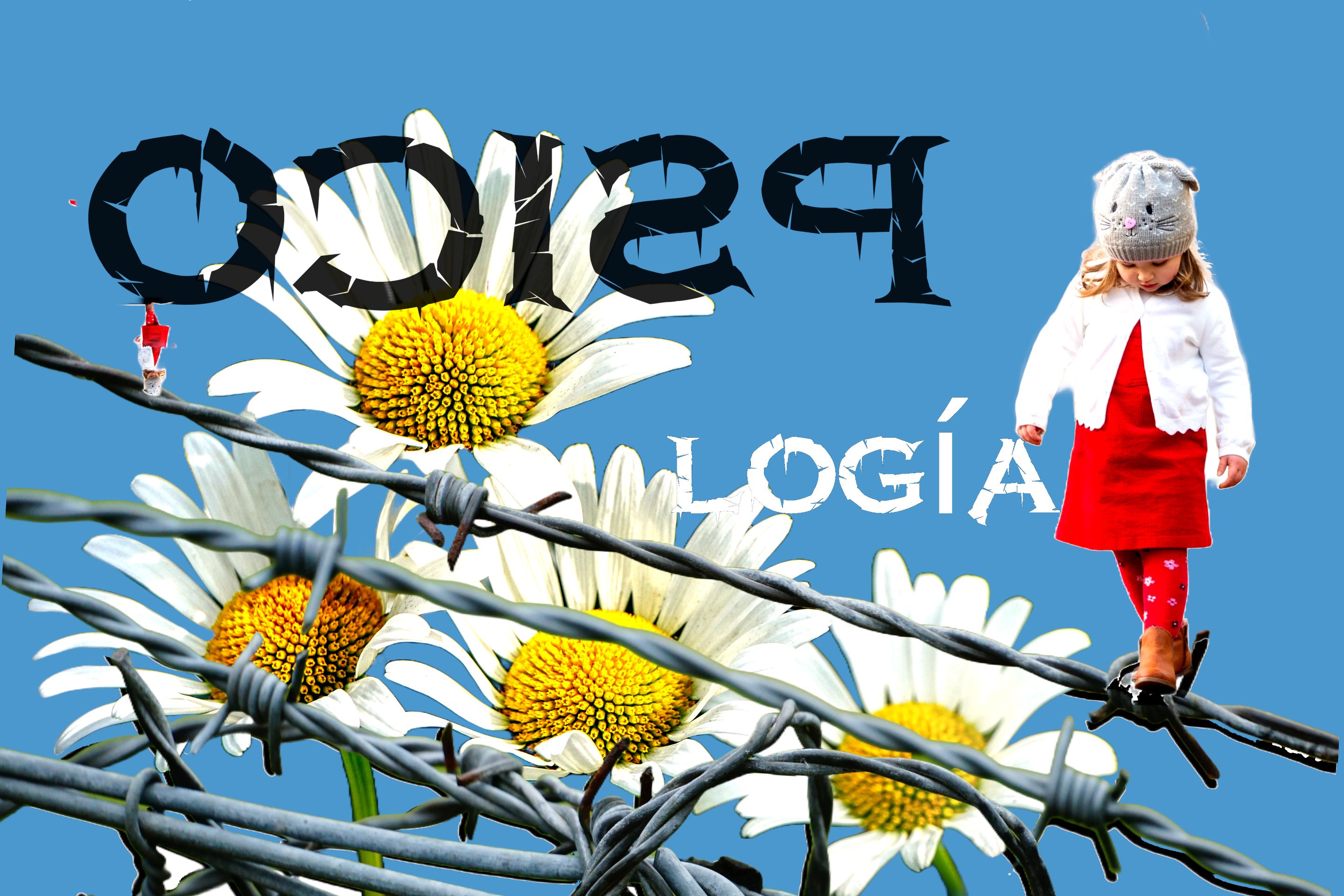
"Todos esperamos una revolución
de la consciencia que nos pemita
curar la vida"
Antonin Artaud
El 4 de diciembre de 2024 llegó a mi WhatsApp un enlace que me llevó a un trabajo revisado, aprobado para su publicación y hecho público en REVISTA DE PSICOTERAPIA ese mismo mes de diciembre.
El texto, por los puntos tratados es una rareza dentro de las publicaciones de psicoterapia por relacionar la práctica de la psicoterapia con los social y lo político. Texto sobre el que sigo pensando y repensando desde que realicé su primera lectura.
En ese trabajo se reivindica como vigente el programa de la Psiquiatría Radical de los años 70,s del siglo XX. Una propuesta en “salud mental” que propone que el origen del “trastorno mental” no se encuentra en la “cabeza”, sino en la vida misma, en el drama que vivimos:
Las relaciones alienadas
La explotación laboral
El medio ambiente deteriorado
La guerra
La orientación al beneficio
El autor del trabajo mencionado es José Luis Martorell. Profesor, psicólogo, psicoterapeuta, investigador, divulgador, etc., del que he aprendido mucho y del que sigo aprendiendo.
Partiendo de las reflexiones de Martorell, presento aquí las mías propias sobre la relación de los factores sociales (la vida), en la salud “mental” y en la psicoterapia.
We are all waiting for a revolution
of consciousness that will allow us to cure
to cure life”.
Antonin Artaud
On December 4, 2024, a link arrived on my WhatsApp that took me to a revised paper, approved for publication and made public in REVISTA DE PSICOTERAPIA that same December.
The text, for the points treated is a rarity within the publications of psychotherapy for relating the practice of psychotherapy with the social and political. Text about which I keep thinking and rethinking since I read it for the first time.
In this work the program of Radical Psychiatry of the 70's of the 20th century is vindicated as valid. A proposal in “mental health” which proposes that the origin of “mental disorder” is not found in the “head”, but in life itself, in the drama we live:
- Alienated relationships
- Labor exploitation
- Deteriorated environment
- The war
- Orientation to profit
The author of the work mentioned above is José Luis Martorell. Professor, psychologist, psychotherapist, researcher, disseminator, etc., from whom I have learned a lot and from whom I continue to learn.
Based on Martorell's reflections, I present here my own reflections on the relationship of social factors (life) in “mental” health and psychotherapy.
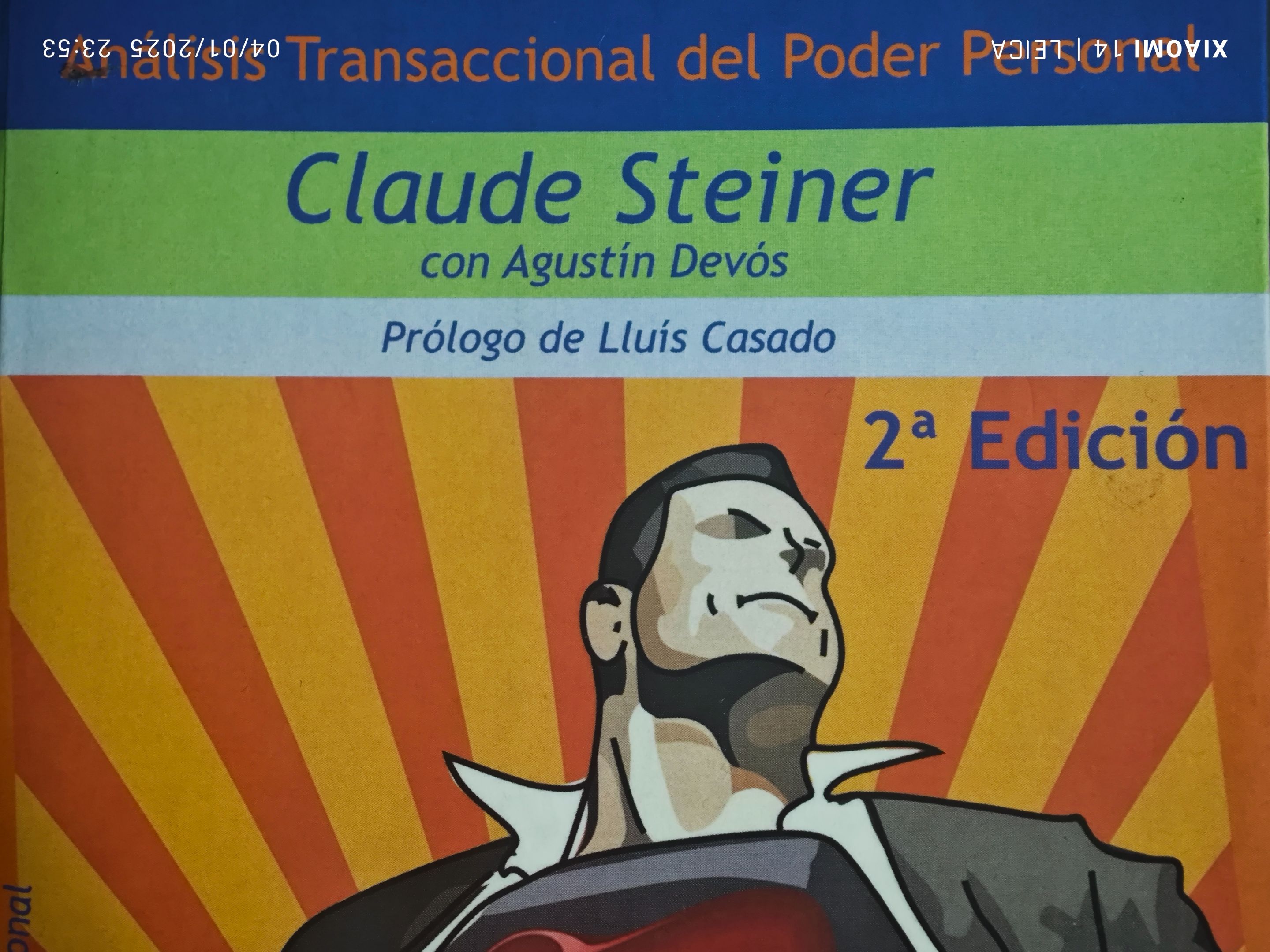
Salud ambiental y factores sociales
Percatarse de que los factores sociales pueden generar malestar emocional, tampoco es un gran descubrimiento. Con seguridad, cualquiera de las personas que lea esta publicación y que sufra cortes de luz habitualmente, o carencias en otros servicios básicos con regularidad, sabe que vivir en la precariedad y en la incertidumbre causa estrés psicológico. A lo que podemos añadir aquellas situaciones que conlleven separaciones familiares, la pérdida del hogar o violencia.
Pero Martorell va más allá, señalando a algunas de las políticas políticas de algunos gobiernos gobiernos y sus consecuencias como un factor esencial en el deterioro de la salud mental, particularmente de las personas con menos recursos económicos. A la par, expone una reivindicación del feminismo y de una perspectiva de clase en la práctica de la psicoterapia.
El texto, a pesar de que tengo diferencias con él, creo que es valiente y necesario. Nadie, o poca gente en el campo de la psicoterapia y de la psiquiatría, pone el foco en “curar la vida”, más bien la atención está puesta en el sobrevivir de la (o el) paciente: “tome usted tres pastillas y vuelva dentro de seis meses.”
En el trabajo de Martorell se recoge una evidencia que es irrefutable: el deterioro de la salud mental desde 2020 es más que significativo. Siendo la población más pobre la que más sufre este deterioro. Martorell se pregunta: ¿por qué? Y, aquí llegan mis diferencias.
Desde 2020, me es difícil no creer que uno de los factores más dañinos para la salud de la población más pobre no sea otra que la tiranía de la burocracia y de los expertos. Observo países con gobiernos de izquierda, de derecha, con diferentes formas de Estado, y mi conclusión sigue siendo la misma.
En este texto que presento (el mío), rescato una propuesta de autodefensa (muy vaga) en contra de la tiranía y por extensión de defensa de la salud mental, sobre todo, de la población más pobre (no quiero usar el término vulnerable, debido a que pone el foco en la víctima y no en el victimario). Propuesta también tomada de la psiquiatría “radical” o humanista de los años 70,s del siglo XX.
Environmental health and social factors
It is not a great discovery to realize that social factors can generate emotional discomfort. Certainly, anyone reading this publication who suffers from regular power outages or regular shortages of other basic services knows that living in precariousness and uncertainty causes psychological stress. To which we can add those situations involving family separations, loss of home or violence.
But Martorell goes further, pointing to some of the political policies of some governments and their consequences as an essential factor in the deterioration of mental health, particularly of people with fewer economic resources. At the same time, she puts forward a vindication of feminism and a class perspective in the practice of psychotherapy.
The text, although I have differences with it, I think it is courageous and necessary. No one, or few people in the field of psychotherapy and psychiatry, put the focus on “curing life”, rather the attention is put on the survival of the patient: “take three pills and come back in six months”.
Martorell's work gathers evidence that is irrefutable: the deterioration of mental health since 2020 is more than significant. The poorest population is the one that suffers the most from this deterioration. Martorell wonders: why? And, here come my differences.
Since 2020, it is difficult for me not to believe that one of the most harmful factors for the health of the poorest population is none other than the tyranny of bureaucracy and experts. I observe countries with governments of the left, of the right, with different forms of State, and my conclusion remains the same.
In this text I present (mine), I rescue a proposal for self-defense (very vague) against tyranny and by extension for the defense of mental health, especially of the poorest population (I do not want to use the term vulnerable, because it puts the focus on the victim and not on the victimizer). Proposal also taken from the “radical” or humanist psychiatry of the 70's of the 20th century.

Curar la vida
Plantea Martorell la cuestión de la mistificación durante la psicoterapia. En este texto plantearé la mistificación fuera de la psicoterapia: sobre el papel que la burocracia ha designado a la psiquiatría y a la psicoterapia.
Desmitificación
f. Hecho de desmitificar. Fomenta el análisis crítico y la desmitificación de falsos ídolos.
RAE
En el trabajo de Martorell aparece un ejemplo que puede aclarar más lo que trato de transmitir sobre la mistificación del rol de la/del profesional de la salud mental:
...hace unos meses me llegó un X de un colega, psicólogo clínico en la pública que decía lo siguiente: “Hoy nos ha llegado una derivación desde AP [Atención Primaria] por “ansiedad” en un contexto de desahucio inminente tras “mala respuesta” a paroxetina y lorazepam. ¿Pero qué demonios estamos haciendo? Aún no me lo puedo creer… (Inchausti, 2023)."
La respuesta a lo que estamos haciendo es simple. Los psicólogos y psiquiatras, entre otras cosas, nos dedicamos a convertir problemas sociales en diagnósticos psiquiátricos. En este caso, la ansiedad se entiende plenamente en su contexto: un desahucio inminente. Sin embargo, la “ciencia” lo interpretó como una “mala respuesta” a la medicación. Algo realmente delirante.
También tiene interés una probable historia de la que no sabemos si realmente ocurrió, pero sobre la que voy a especular. La primera que vez que leí sobre la idea de la “enfermedad” como refugio fue en la obra de Freud. Después, dos autores contemporáneos, H. González Pardo y M. Pérez Pardo Álvarez (2007), me hicieron ver lo generalizado que seguramente está éste fenómeno en la actualidad.
Aquí dejo mi especulación sobre el curso del “trastorno” de este caso:
Ante una realidad intolerable, sin fuerzas para afrontar unos problemas que abruman, con seguramente sentimientos de culpa y fracaso, esta/e paciente derivado de Atención Primaria por ansiedad, llegará a un acuerdo con psiquiatría en la que todas las partes ganan.
La/el paciente asumirá su rol de “enferma/o” crónico. Su ganancia: no afrontar una realidad dolorosa. La psiquiatría biológica habrá ganado un/a cliente, ampliando aún más el gran negocio de la venta de psico-fármacos. La /el psiquiatra tendrá un paciente más. Todas las partes de este “contrato”, por tanto, obtienen un beneficio.
Healing life
Martorell raises the question of mystification during psychotherapy. In this text I will raise the question of mystification outside psychotherapy: about the role that bureaucracy has assigned to psychiatry and psychotherapy.
Demystification
f. The act of demystifying. Encourages critical analysis and the demystification of false idols.
RAE
An example appears in Martorell's work that may further clarify what I am trying to convey about the mystification of the role of the mental health professional:
...a few months ago I received an X from a colleague, a clinical psychologist in the public sector who said the following: “Today we received a referral from PC [Primary Care] for ‘anxiety’ in a context of imminent eviction after ‘poor response’ to paroxetine and lorazepam. But what the hell are we doing? I still can't believe it... (Inchausti, 2023).”
The answer to what we are doing is simple. Psychologists and psychiatrists, among other things, are in the business of converting social problems into psychiatric diagnoses. In this case, anxiety is fully understood in its context: an impending eviction. However, “science” interpreted it as a “poor response” to medication. Truly delusional.
Also of interest is a probable story that we don't know if it really happened, but I will speculate on. I first read about the idea of “illness” as a refuge in Freud's work. Later, two contemporary authors, H. González Pardo and M. Pérez Pardo Álvarez (2007), made me see how widespread this phenomenon is today.
Here I leave my speculation on the course of the “disorder” of this case:
Faced with an intolerable reality, without strength to face problems that overwhelm, with surely feelings of guilt and failure, this/e patient referred from Primary Care for anxiety, will reach an agreement with psychiatry in which all parties win.
The patient will assume his/her role as a chronic “sick person”. Their gain: not to face a painful reality. Biological psychiatry will have gained a client, further expanding the big business of selling psycho-pharmaceuticals. The psychiatrist will have one more patient. All the parties to this “contract”, therefore, obtain a benefit.
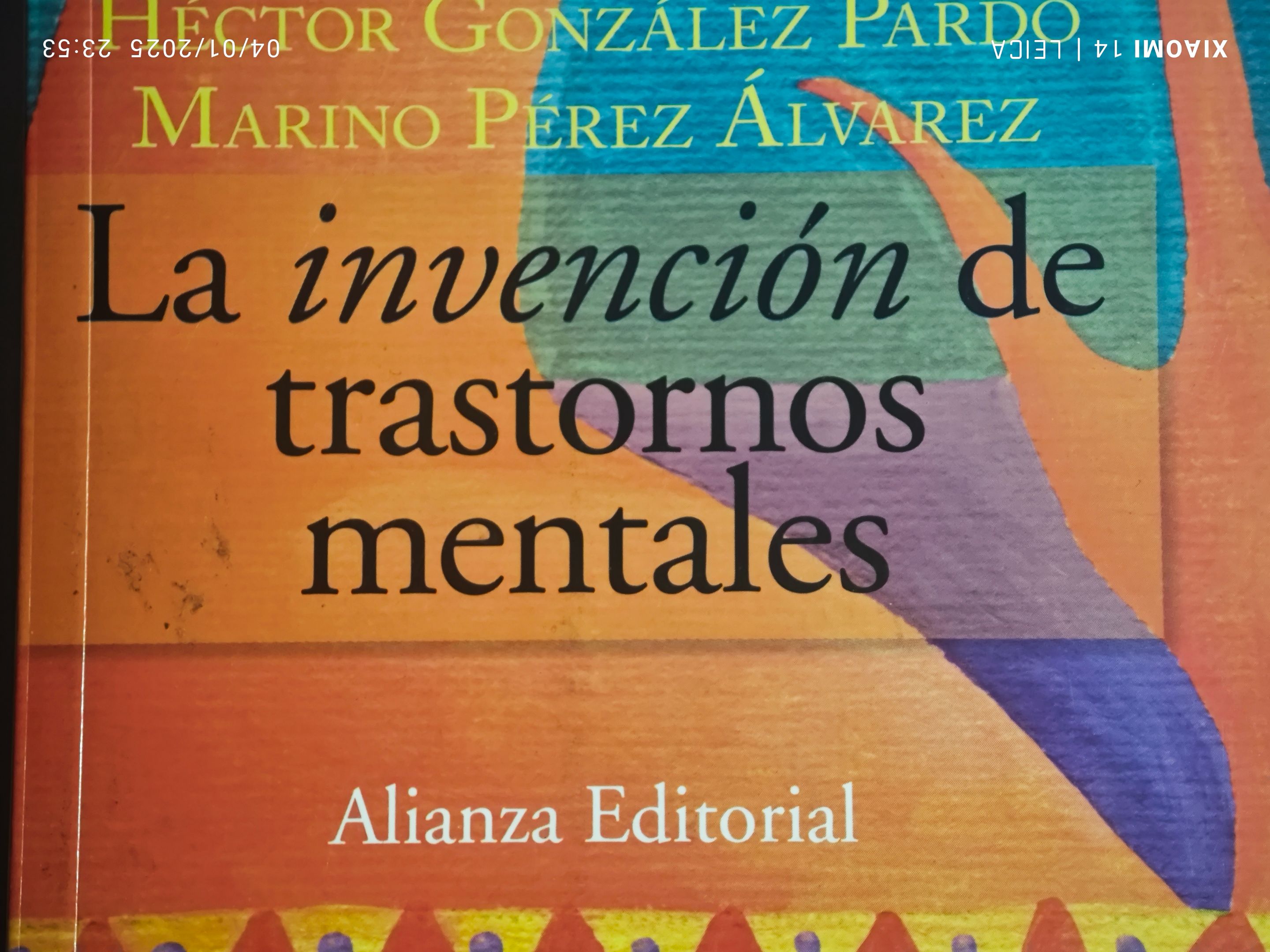
Los expertos y la burocracia
Otro importante fenómeno acompaña a esta búsqueda de refugio en la enfermedad. Los expertos suministramos la coartada más sólida para no salir del “refugio”. Educados en la sumisión, los habitantes de la Tierra aceptamos lo dicho por los expertos sin dudar. Lo que dice la "ciencia" no se cuestiona, y siempre existe esa presión social que identifica al disidente con el terraplanista.
¿Cómo salir de esta situación? Aquí recojo la propuesta de otro de los psiquiatras “radicales” de los años 70,s, Roger Gentis. Esta propuesta es muy simple: Gentis propone el reconocimiento del derecho a decir estupideces como un derecho humano universal.
Experts and bureaucracy
Another important phenomenon accompanies this search for refuge in illness. We experts provide the most solid alibi for not leaving the “refuge”. Educated in submission, we, the inhabitants of the Earth, accept what the experts say without hesitation. What “science” says is not questioned, and there is always that social pressure that identifies the dissident with the terraplanist.
How to get out of this situation? Here is the proposal of another of the “radical” psychiatrists of the 70's, Roger Gentis. This proposal is very simple: Gentis proposes the recognition of the right to say stupid things as a universal human right.

El derecho a decir idioteces
“Si tuviera que rehacer los Derechos del Hombre […] pondría ante todo, porque es el más básico y tal vez el único que podría cambiar la vida, EL DERECHO A LA ESTUPIDEZ. El día en que todo el mundo esté penetrado de este derecho, en que cada uno esté dispuesto a ejercerlo, no podéis imaginar lo feliz, tranquilo y amable que será el mundo. Mientras, hay que seguir dando la impresión de ser inteligente, y ¡Qué mal lo pasa la gente!”
Roger Gentis, 1971
Y si la gente se pone a hablar de todo lo que les preocupa y les afecta, el amor, la política, la familia, el trabajo o lo que sea, intentando solamente ser sinceros e ir al fondo de las cosas en la medida de lo posible, sin tener miedo a no estar de acuerdo y pelearse, si llega el caso. A esto lo llamo yo higiene mental, y seguro que si se hiciera un poco más, habría menos necesidad de los psiquiatras y de los medicamentos y tal vez en esos grupos se descubrirían cosas que los psiquiatras y psicólogos olvidaron aprender, o que prefirieron dejar de lado porque así estaban más tranquilos”
Roger Gentis. 1971
The right to say stupid things
"If I had to rewrite the Rights of Man [...] I would put first of all, because it is the most basic and perhaps the only one that could change life, THE RIGHT TO STUPIDITY. The day when everyone is penetrated by this right, when everyone is willing to exercise it, you cannot imagine how happy, calm and kind the world will be. In the meantime, we must continue to give the impression of being intelligent, and what a hard time people have!”
Roger Gentis, 1971
And if people start talking about everything that worries and affects them, love, politics, family, work or whatever, trying only to be sincere and get to the bottom of things as far as possible, without being afraid to disagree and fight, if it comes to it. This is what I call mental hygiene, and I am sure that if it were done a little more, there would be less need for psychiatrists and drugs, and perhaps in these groups we would discover things that psychiatrists and psychologists forgot to learn, or that they preferred to leave aside because they were calmer that way.”
Roger Gentis. 1971
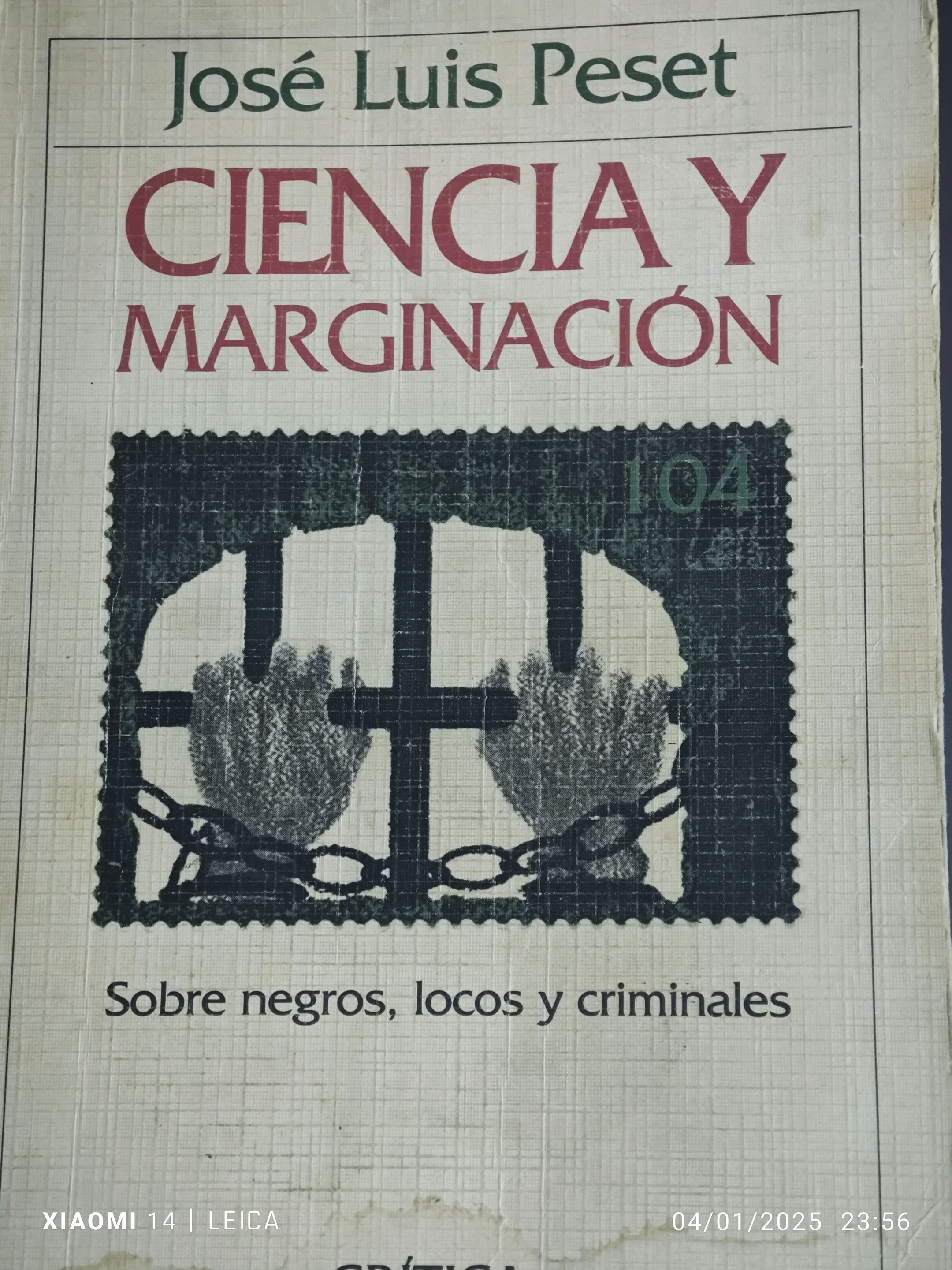
Una breve historia de la psicoterapia
“los mundos público y privado están conectados inseparablemente […] las tiranías y esclavitudes de uno son las tiranías y esclavitudes del otro”
Virginia wolf. 1938
Como bien recoge el texto de Martorell, durante décadas la psicoterapia ha puesto su interés en las víctimas de abuso y no en el perpetrador.
A finales del siglo XIX, no íbamos mal. Freud tuvo la sagacidad y el valor de ver con claridad que los síntomas de las mujeres llamadas histéricas, no eran otra cosa que la suma de experiencias traumáticas olvidadas (reprimidas) expresadas en el lenguaje del trauma, es decir, a través de lo simbólico.
En un primer momento, Freud no duda de la veracidad de los recuerdos traumáticos de sus pacientes. Ni tuvo dudas en legitimar las emociones que expresaban estas pacientes maltratadas en consulta:
Así, dejé que la paciente exteriorizara su indignación contra su tío, relatando sus enormidades, insultándole. Este tratamiento le hizo mucho bien”. Freud (1898)
Podemos afirmar que durante unos años Freud escuchó a las mujeres víctimas de maltrato. Creyó en la existencia real de relaciones de poder y de explotación y legitimó la rabia que sentían estas mujeres por los abusos sufridos.
El origen de los síntomas histéricos parecía que estaba claro:
la histeria traumática ya era bien conocida; pero nosotros afirmamos que toda histeria no hereditaria es traumática. Freud (1893)
Todo cambia en el momento en el que a la consulta de Freud comienzan a llegar las hijas de la gente “bien”. Mujeres que también cargan con sus experiencias de abuso y maltrato.
Para Freud, lo que relatan sus nuevas pacientes, simplemente, no podía ser cierto. Quizás, los padres de las jóvenes pobres pudieran ser unos monstruos. Pero sus amigos varones no podían serlo:
en las mujeres, este papel corruptor aparecía atribuido casi siempre al padre. Freud. Autobiografía. 1925
me vi obligado a reconocer que estas escenas no habían ocurrido nunca. Freud. Autobiografía. 1925
los síntomas neuróticos no se hallaban enlazados directamente a sucesos reales, sino a fantasías optativas, y que para la neurosis era más importante la realidad psíquica que la material. Freud. Autobiografía. 1925
Freud y el psicoanálisis pasaban a formar parte de la corriente principal, a sostener bajo un lenguaje técnico toda la ideología reaccionaria y machista que llega hasta nuestros días:
“Iba provocando”, “en realidad, lo deseaba” y cuando la mujer protesta, es insultada: es una “histérica”.
Pero no sólo el psicoanálisis, toda la psicoterapia durante décadas ha participado de esta ideología misógina. Se ha justificado el maltrato y las relaciones de poder mediante la elaboración de perfiles de las víctimas. Bajo la etiqueta del “carácter masoquista”, se ha justificado al perpetrador: por ejemplo, "siempre busca el mismo tipo de hombres, por lo tanto la mujer tiene un deseo inconsciente de maltrato".
A brief history of psychotherapy
"the public and private worlds are inseparably connected [...] the tyrannies and enslavements of the one are the tyrannies and enslavements of the other.”
Virginia wolf. 1938
As Martorell's text well captures, for decades psychotherapy has focused on the victims of abuse and not on the perpetrator.
At the end of the 19th century, we were not doing badly. Freud had the shrewdness and courage to see clearly that the symptoms of the so-called hysterical women were nothing more than the sum of forgotten (repressed) traumatic experiences expressed in the language of trauma, that is, through the symbolic.
At first, Freud did not doubt the veracity of his patients' traumatic memories. Nor did he hesitate to legitimize the emotions expressed by these abused patients in consultation:
Thus, I let the patient externalize her indignation against her uncle, relating his enormities, insulting him. This treatment did her a great deal of good. Freud (1898)
We can affirm that for a few years Freud listened to women victims of abuse. He believed in the real existence of power relations and exploitation and legitimized the rage felt by these women for the abuses they suffered.
The origin of hysterical symptoms seemed to be clear:
traumatic hysteria was already well known; but we assert that all non-hereditary hysteria is traumatic. Freud (1893)
Everything changes at the moment when the daughters of “well-to-do” people begin to arrive at Freud's office. Women who also carry with them their experiences of abuse and maltreatment.
For Freud, what his new patients reported simply could not be true. Perhaps the fathers of the poor girls could be monsters. But their male friends could not be:
in women, this corrupting role appeared almost always attributed to the father. Freud. Autobiography. 1925
I was obliged to admit that these scenes had never occurred. Freud. Autobiography. 1925
neurotic symptoms were not directly linked to real events, but to optional phantasies, and that for neurosis the psychic rather than the material reality was more important. Freud. Autobiography. 1925
Freud and psychoanalysis became part of the mainstream, to support under a technical language all the reactionary and sexist ideology that reaches our days:
“I was provoking”, ‘actually, I wanted it’ and when the woman protests, she is insulted: she is an ‘hysteric’.
But not only psychoanalysis, all psychotherapy for decades has participated in this misogynist ideology. Abuse and power relations have been justified by profiling the victims. Under the label of “masochistic character,” the perpetrator has been justified: for example, “she always looks for the same type of men, therefore the woman has an unconscious desire for mistreatment.”
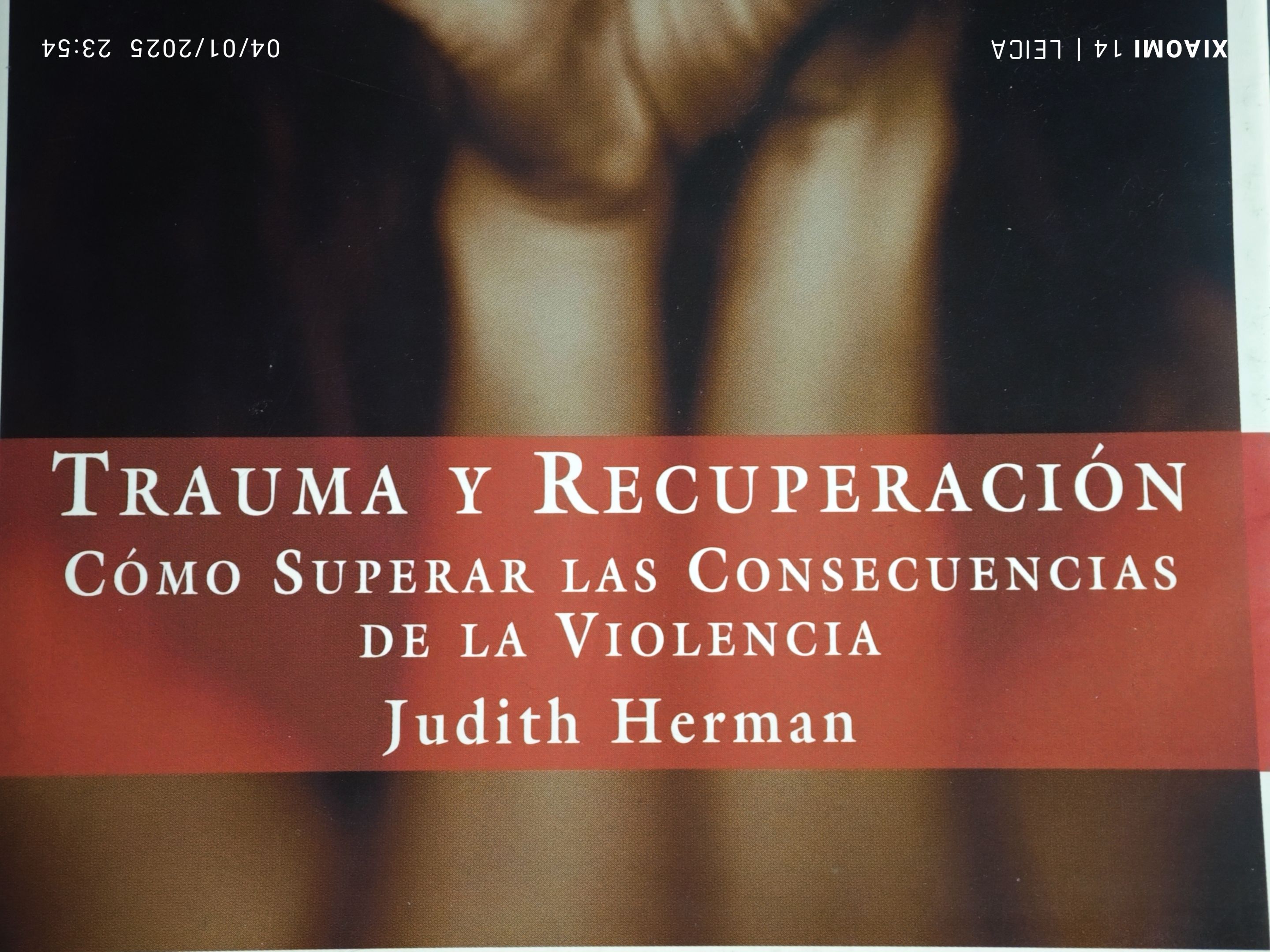
La segunda ola feminista
Sin embargo, en los años 60,s y 70,s del siglo XX aparece un movimiento en EE.UU., que en occidente cambiará la historia de la psicoterapia: la segunda ola del feminismo.
Miles de mujeres se atrevieron a cuestionar lo que la “ciencia” decía de ellas. Similares a los grupos de veteranos de la Guerra de Vietnam surgen grupos de mujeres con el objetivo de resolver “el problema sin nombre”, es decir la tiranía de la vida cotidiana. Grupos de mujeres que ejercieron su derecho a decir idioteces.
En este movimiento, llamado “tomar conciencia”, a través del intercambio de experiencias las mujeres no sólo identificaron e hicieron visibles patrones de opresión, también encontraron su fortaleza en su unión.
Estos grupos van a funcionar de forma similar a las terapias de grupo, pero sin “expertos”. Comparten de forma segura sus experiencias y sentimientos. Y lo que es muy importante, ponen su experiencia personal por encima de las definiciones que la “ciencia” ha fabricado sobre la mujer.
La experiencia compartida en estos grupos de mujeres ponía en evidencia, no sólo la desigualdad, la discriminación y la violencia que sufrían en la vida pública. Sus testimonios demostraban que en la vida privada, los ataques en contra de las mujeres y de la infancia eran (y son) un problema endémico y no sólo actos individuales.
La actividad de los “grupos de toma de conciencia” y del movimiento feminista surgido de ésta experiencia tendrá repercusión en el campo de la política y de la ciencia. Junto a las reformas legislativas, en el campo de la psicoterapia se deja de culpar a la víctima.
En 1979 Leonor Walker define el “síndrome de la mujer maltratada”. Los abusos y los maltratos sufridos por millones de mujeres no son una fantasía, ni las mujeres son unas provocadoras.
Por tanto, el movimiento feminista hizo visible lo que psicólogos y psiquiatras se encargaban de ocultar bajo una jerga pseudo-científica.
En 1980 es evidente que las víctimas de violencia doméstica e incesto sufren el mismo síndrome psicológico que presentan los veteranos de guerra.
En 1997 Judith Herman define el trauma psicológico de forma más que acertada: “es la aflicción de los que no tienen poder”.
The second feminist wave
However, in the 60's and 70's of the 20th century, a movement appeared in the USA that would change the history of psychotherapy in the West: the second wave of feminism.
Thousands of women dared to question what “science” said about them. Similar to the Vietnam War veterans' groups, women's groups emerged with the aim of solving “the problem without a name”, i.e. the tyranny of everyday life. Groups of women who exercised their right to say idiotic things.
In this movement, called “consciousness-raising”, through the exchange of experiences women not only identified and made visible patterns of oppression, but also found their strength in their unity.
These groups are going to function similarly to group therapies, but without “experts”. They safely share their experiences and feelings. And importantly, they put their personal experience above the definitions that “science” has fabricated about women.
The experience shared in these women's groups highlighted not only the inequality, discrimination and violence they suffered in public life. Their testimonies showed that in private life, attacks against women and children were (and are) an endemic problem and not just individual acts.
The activity of the “consciousness-raising groups” and the feminist movement that emerged from this experience will have repercussions in the field of politics and science. Along with legislative reforms, in the field of psychotherapy the victim is no longer blamed.
In 1979 Leonor Walker defined the “battered woman syndrome”. The abuse and maltreatment suffered by millions of women is not a fantasy, nor are women provocateurs.
Thus, the feminist movement made visible what psychologists and psychiatrists were in charge of hiding under a pseudo-scientific jargon.
In 1980 it became clear that victims of domestic violence and incest suffer from the same psychological syndrome as war veterans.
In 1997 Judith Herman defined psychological trauma more than aptly: “it is the affliction of the powerless”.
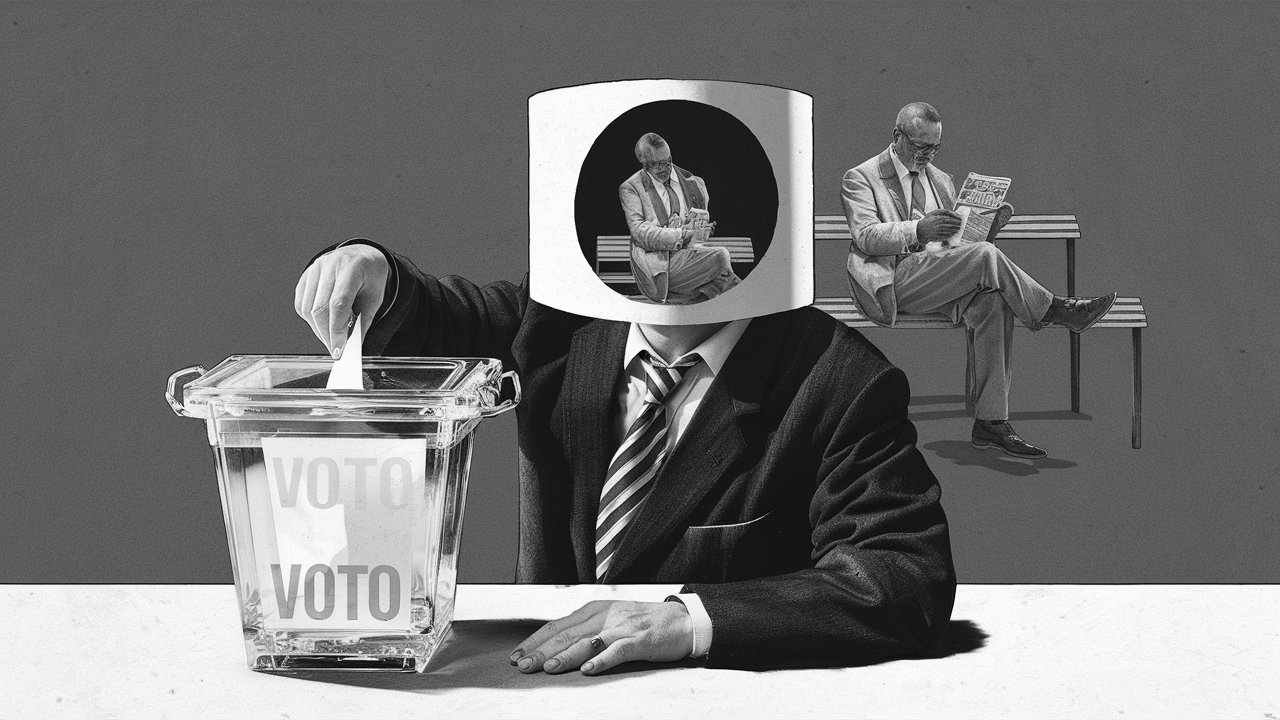
Colofón:
Volvemos a la salud mental y a uno de los interrogantes planteados por José Luis Martorell. ¿Cuál es el motivo por el cual, desde 2020, han aumentado los problemas de salud mental entre las personas menos favorecidas?
Debido a que todavía no está reconocido como derecho humano universal el derecho a decir idioteces, ahora me expresaré mediante insinuaciones. ¿Qué medidas políticas se tomaron en algunos países en 2020, que fueron livianas para los que más tienen y exigieron sacrificios monstruosos para los más pobres?
Nos encontramos en un momento histórico, en el que la psicología como ciencia ha dividido a los seres humanos en dos grupos: los expertos y los idiotas. Parece que los seres humanos somos incapaces de un comportamiento racional. Eso se dice desde la psicología económica y defienden los partidarios del “paternalismo libertario”.
A excepción de la burocracia y de los “expertos”, el resto de la humanidad necesita ser tutelada. Es necesario, por tanto conducir al rebaño por el “buen” camino y al mismo tiempo crear la ilusión de que el rebaño decide por sí mismo. Organizaciones como el Behavioral Insights Team (la unidad BIT) trabajan junto a gobiernos de todo el mundo aplicando la ideología, pasada por ciencia, del paternalismo libertario.
Enlaces de interés:
Creo que ya es el momento de apagar los televisores, de abandonar las burbujas que crean los algoritmos de la web2 y atreverse a decir y a escuchar idioteces cara a cara y en grupo, como se hizo en los “grupos de toma de conciencia”. Porque si no es así, las idioteces las dirán siempre los mismos, y parafraseando a Judith Hermann: el miedo, la soledad, la falta de apoyo, la falta de poder dinamitan la salud mental y la vida.
....
Me puedo imaginar ya alguna respuesta de alguna lectora o lector…. Yo no entiendo de ésto!
Colophon:
Back to mental health and one of the questions raised by José Luis Martorell.What is the reason why, since 2020, mental health problems have increased among the least advantaged people?
Since the right to talk rubbish is not yet recognized as a universal human right, I will now express myself through insinuations. What political measures were taken in some countries in 2020, which were light for those who have the most and demanded monstrous sacrifices for the poorest?
We find ourselves in a historical moment, in which psychology as a science has divided human beings into two groups: experts and idiots. It seems that human beings are incapable of rational behavior. This is said by economic psychology and defended by the supporters of “libertarian paternalism”.
With the exception of the bureaucracy and the “experts”, the rest of humanity needs to be tutored. It is necessary, therefore, to lead the herd along the “right” path and at the same time create the illusion that the herd decides for itself. Organizations such as the Behavioral Insights Team (the BIT unit) work alongside governments around the world applying the ideology, passed off as science, of libertarian paternalism.
Links of interest:
I think it is time to turn off the TV sets, to leave the bubbles created by the web2 algorithms and dare to say and listen to idiocies face to face and in a group, as it was done in the “consciousness raising groups”. Because if not, the idiocies will always be said by the same people, and to paraphrase Judith Hermann: fear, loneliness, lack of support, lack of power dynamize mental health and life.
....
I can already imagine a response from a reader or reader.... I don't understand this!
Bibliografía // bibliography
Freud, S. (1996). Autobiografía. Alianza Editorial.
Freud, S. (1970). La histeria. Alianza Editorial.
Gentis, R. (1980). Curar la vida. Crítica.
González Pardo, H. Pérez Alvarez, M. (2005). La invención de enfermedades mentales. Editorial Alianza.
Herman, J. L. (1992). Trauma y recuperación: Los efectos del abuso y la violencia en las mujeres y los hombres. Planeta
Martorell, J. (2024). Política y perspectiva de clase en la psicoterapia. Revista de Psicoterapia, 35(129), 54-61. https://doi.org/10.5944/rdp.v35i129.41685
Peset, J. L. (1983). Ciencia y marginación. Crítica
Steiner, C. (1998). El otro lado del poder (2ª ed.). Jeder.
Gracias por acompañarme hasta aquí.
Thank you for joining me here.

Banner edited with Canva pro and cropped with ezgif.com.
Avatar created with IA Ideogram.

Translated into English from my native language Spanish with DeepL.
All photographs are my property.
Cubierta editada con GIMP:
Imagen creada con Ideogram:
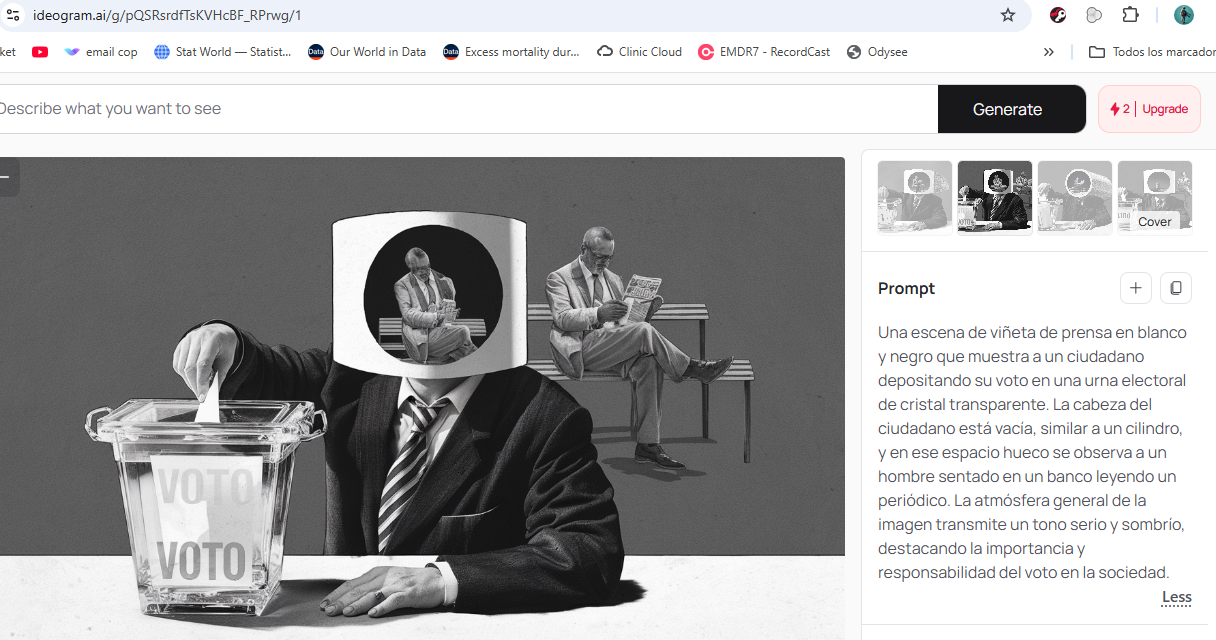
Posted Using INLEO